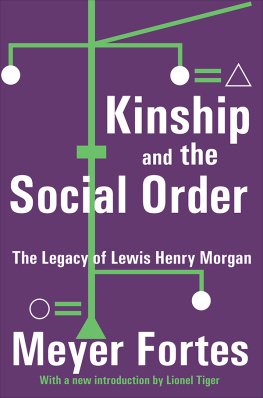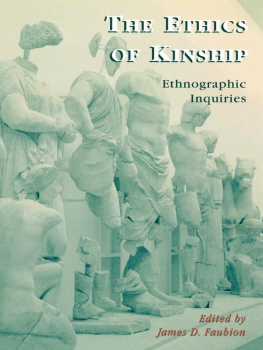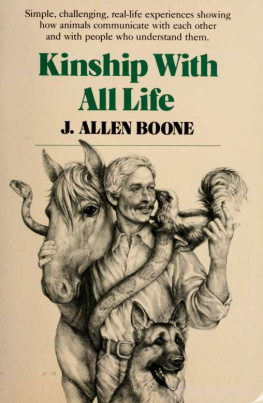
Suckling
A ground-breaking ethnographic study of suckling in the Arabian Gulf, this book reenergizes the study of kinship. It analyses the misunderstood and marginalized phenomenon of suckling drawing on ethnographic fieldwork in Qatar over a seven-year period.
Fadwa El Guindi situates suckling (often given other names or subsumed under misleading classifications) squarely in the analytical category of kinship, with recognition that kinship is necessarily biological, societal, and cultural. The volume takes kinship study beyond origins, natureculture debates, and social nurturing and relatedness, and challenges claims of deterministic, reductionist formulas.
As well as key reading for those involved in milk kinship research, this book is valuable for anthropologists, Middle East scholars and others with an interest in kinship, breastfeeding, family and social organization, and religion.
Fadwa El Guindi is Founding Director of El Nil Research. She is formerly a Distinguished Professor of Anthropology at Qatar University in Doha and is Retiree Anthropologist at the University of California, Los Angeles.
Routledge Studies in Anthropology
Security Blurs
The Politics of Plural Security Provision
Edited by Tessa Diphoorn and Erella Grassiani
Cultural Models of Nature
Primary Food Producers and Climate Change
Edited by Giovanni Bennardo
Guatemalan Vigilantism and the Global (Re)Production of Collective Violence
A Tale of Two Lynchings
Gavin Weston
Human Extinction and the Pandemic Imaginary
Christos Lynteris
The Biometric Border World
Technologies, Bodies and Identities on the Move
Karen Fog Olwig, Kristina Grnenberg, Perle Mhl and Anja Simonsen
Amerindian Socio-Cosmologies between the Andes, Amazonia and Mesoamerica
Toward an Anthropological Understanding of the Isthmo-Colombian Area
Edited by Ernst Halbmayer
Surfaces
Transformations of Body, Materials and Earth
Edited by Mike Anusas and Cristin Simonetti
Suckling
Kinship More Fluid
Fadwa El Guindi
Mambila Divination
Framing Questions, Constructing Answers
David Zeitlyn
www.routledge.com/Routledge-Studies-in-Anthropology/book-series/SE0724.
First published 2020
by Routledge
2 Park Square, Milton Park, Abingdon, Oxon OX14 4RN
and by Routledge
52 Vanderbilt Avenue, New York, NY 10017
Routledge is an imprint of the Taylor & Francis Group, an informa business
2020 Fadwa El Guindi
The right of Fadwa El Guindi to be identified as author of this work has been asserted by her in accordance with sections 77 and 78 of the Copyright, Designs and Patents Act 1988.
All rights reserved. No part of this book may be reprinted or reproduced or utilised in any form or by any electronic, mechanical, or other means, now known or hereafter invented, including photocopying and recording, or in any information storage or retrieval system, without permission in writing from the publishers.
Trademark notice: Product or corporate names may be trademarks or registered trademarks, and are used only for identification and explanation without intent to infringe.
British Library Cataloguing in Publication Data
A catalogue record for this book is available from the British Library
Library of Congress Cataloging-in-Publication Data
A catalog record has been requested for this book
ISBN: 978-1-138-31519-8 (hbk)
ISBN: 978-0-429-45648-0 (ebk)
To the late Laila El Hamamsy, The American University in Cairo, and Henry A. Selby, The University of Texas, Austin. In deep appreciation
Scan of original correspondence between Claude Levi-Strauss and David Schneider regarding the controversial issue of kinship is a non-subject
Sent by the late Roy Wagner to me and Dwight W. Read by email.
Kinship study, once the core mission of anthropology, is regaining vigor through current internationally active research reflected in recent major publications of books (McConvell et al. 2018; Shapiro 2018, among others) and articles in academic journals such as Current Anthropology, Structure and Dynamics, Ethnology, LHomme, Kinship Algebra of the Russian Academy of Sciences, to name a few, and in presentations and organized sessions in international conferences: Max-Planck Institute in Halle, Germany, IUAES in Florianopolis, Brazil, Inter-congress in Poznan, Poland, XII Congress of Anthropologists and Ethnologists of Russia in Kazan, Russia, annual AAA scientific sessions at the American Anthropological Association meetings since 2010, and the research and seminar activities by Lquipe Parent et Logiques Relationnelles of the Laboratoire dAnthropologie Sociale, particularly its recent Atelier dAnalyse Anonyme, coordinated by Klaus Hamberger. The dynamism of the Laboratoire continues as the new coordinators, Olivier Allard and Isabel Yaya McKenzie take over:
Lactivit de lquipe repose sur la discussion collective de matriaux de terrain et de travaux en cours lors du sminaire rgulier. Les intervenants sont invits envoyer un court texte ethnographique dune tude en chantier qui sera discut collectivement. Enfin, lquipe sattache mener terme le projet Parent et procration , initi par Klaus Hamberger en 2012, et dont la publication est prvue sur le site de la revue Terrain, sous une forme collective exprimentale.
The proceedings of the Atelier dAnalyse are about to appear in print in the EHESS journal Terrain.
Neanderthal kinship?
On another note, very interesting recent research concerning kinship was published in the Proceedings of the National Academy of Sciences of the United States of America (PNAS), describing a detailed study of a late Neolithic mass grave from southern Poland (Schroeder et al. 2019) containing the remains of 15 men, women, and children who were shown to be killed by blows to the head. The researchers looked at the data in three contexts: kinship (ancestry), violence, and population movements. The kinship analysis performed on sequenced genomes revealed that the individuals belonged to a large extended family. The bodies had been carefully laid out according to kin relationships by someone who evidently knew the deceased. It was proposed that the violence may have been connected with expansion by neighboring groups and the competition for resources. Combined with archaeological evidence, their analyses provide us with insights into the kinship structure, burial behavior, and violence in a Late Neolithic community. These and other research developments across the four fields of anthropology concerning kinship show great promise.
Kinship is four-field anthropology
Consider the observation by Adam Kuper made as a Huxley Lecture in 2007, published in 2008 in









